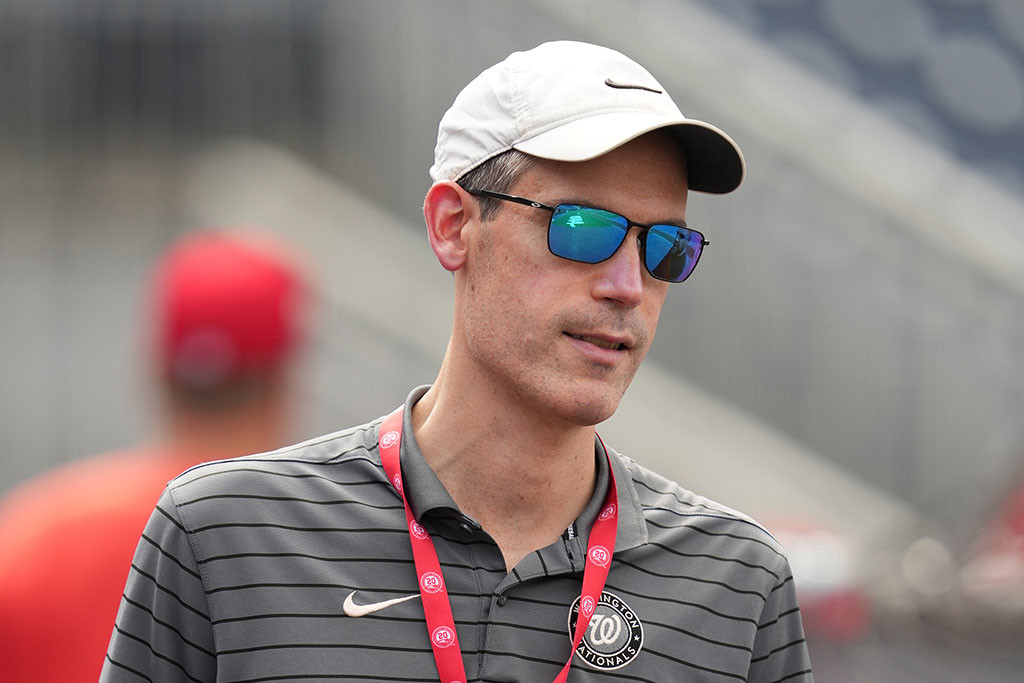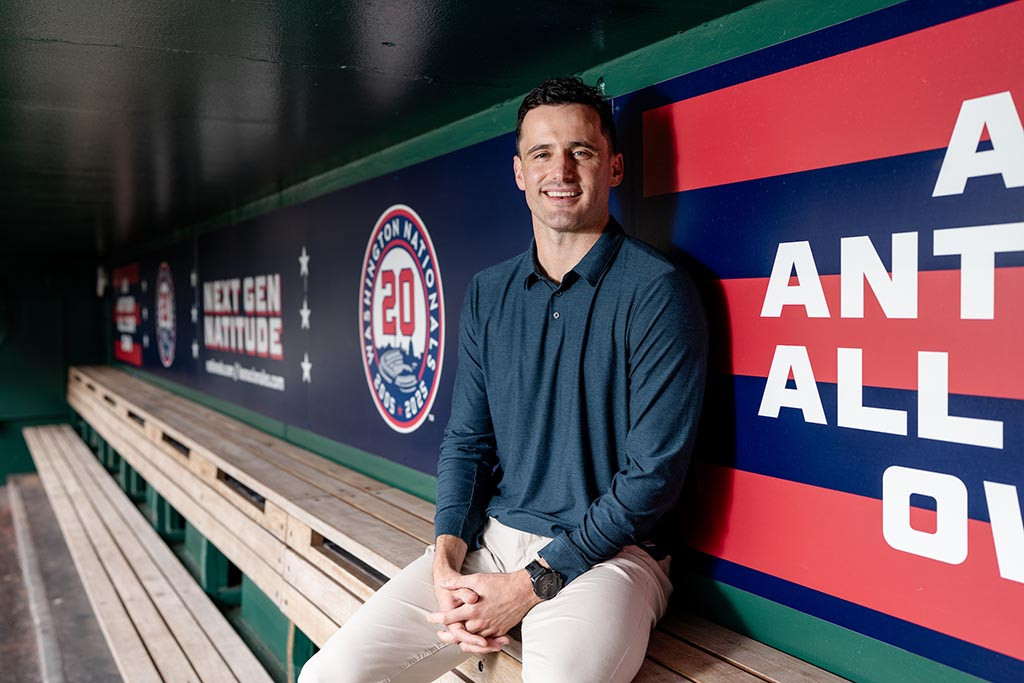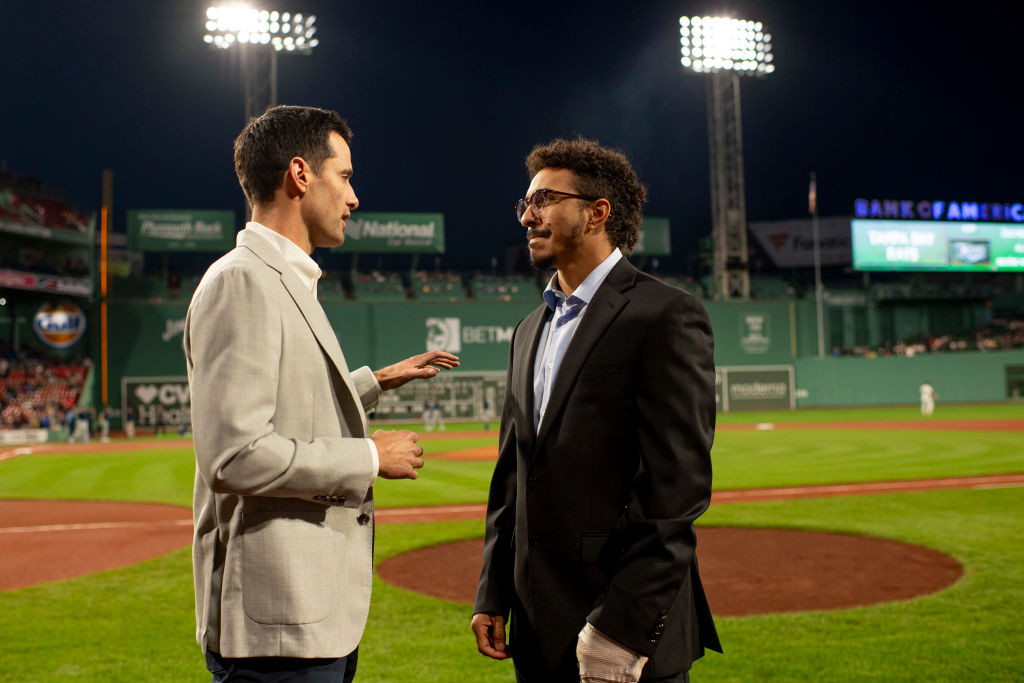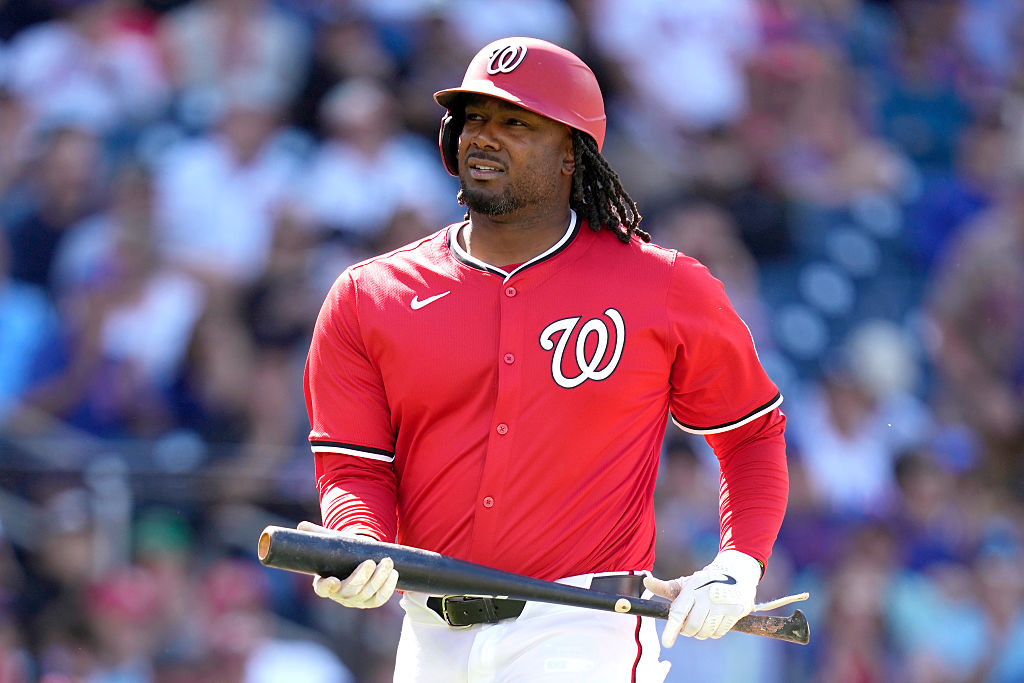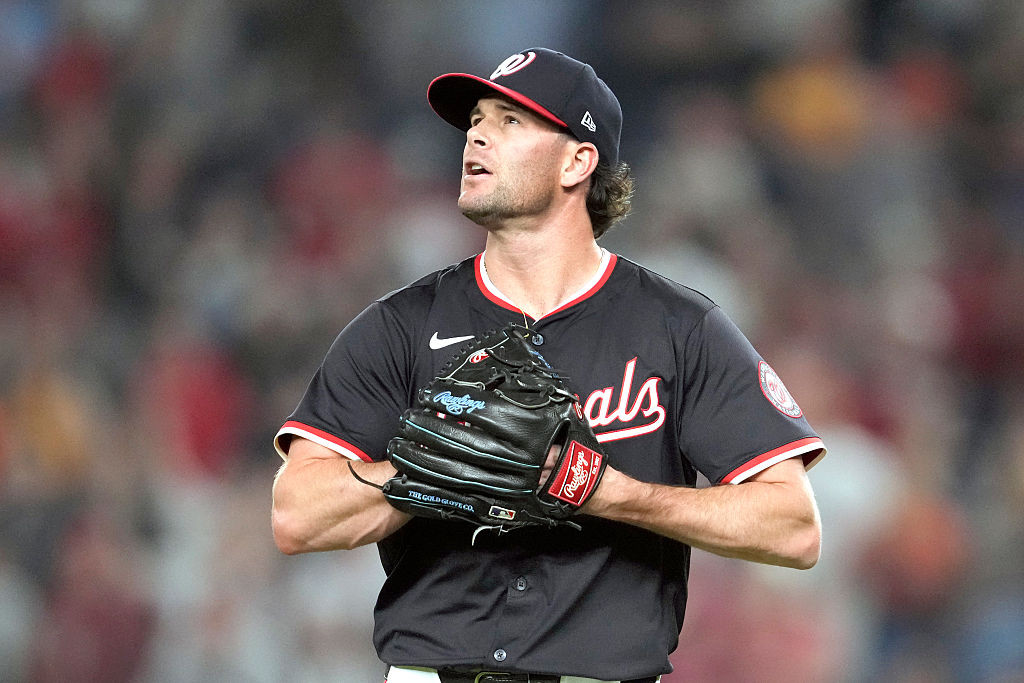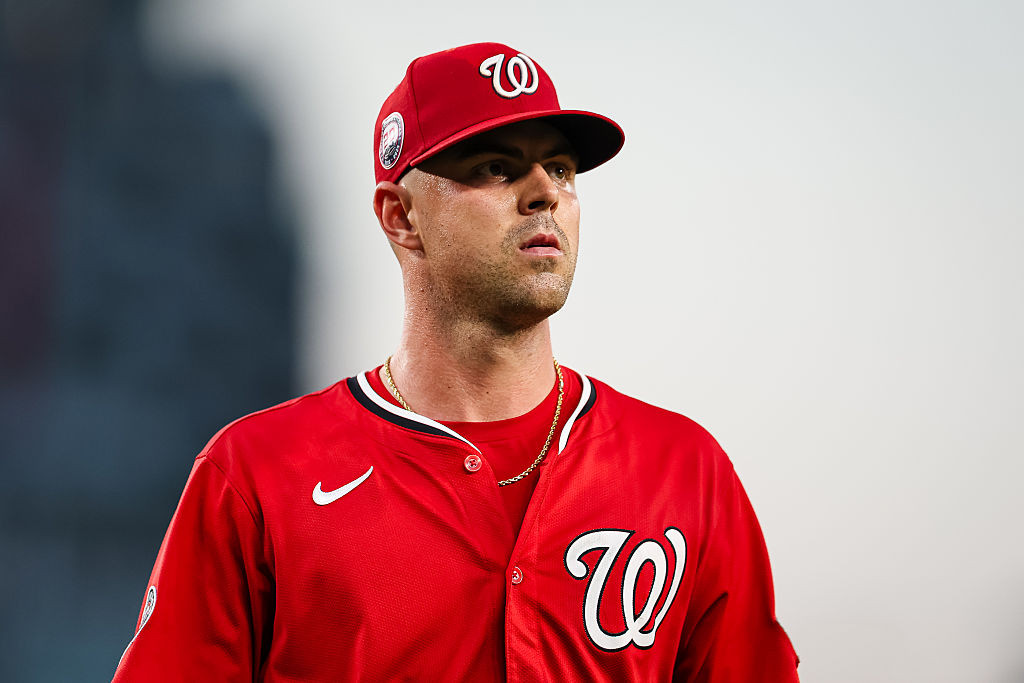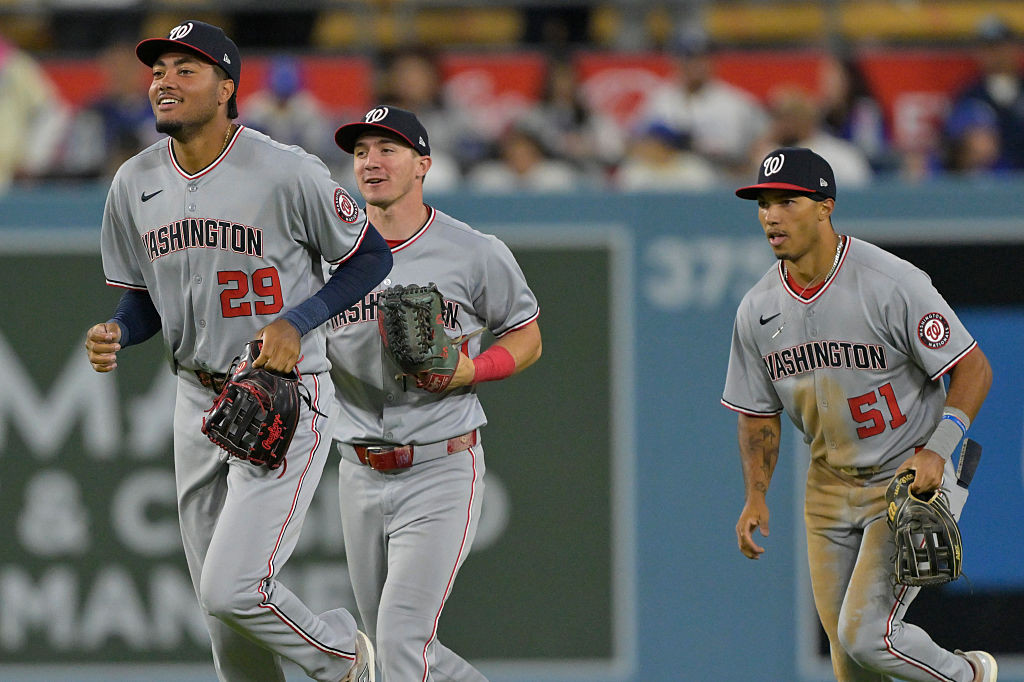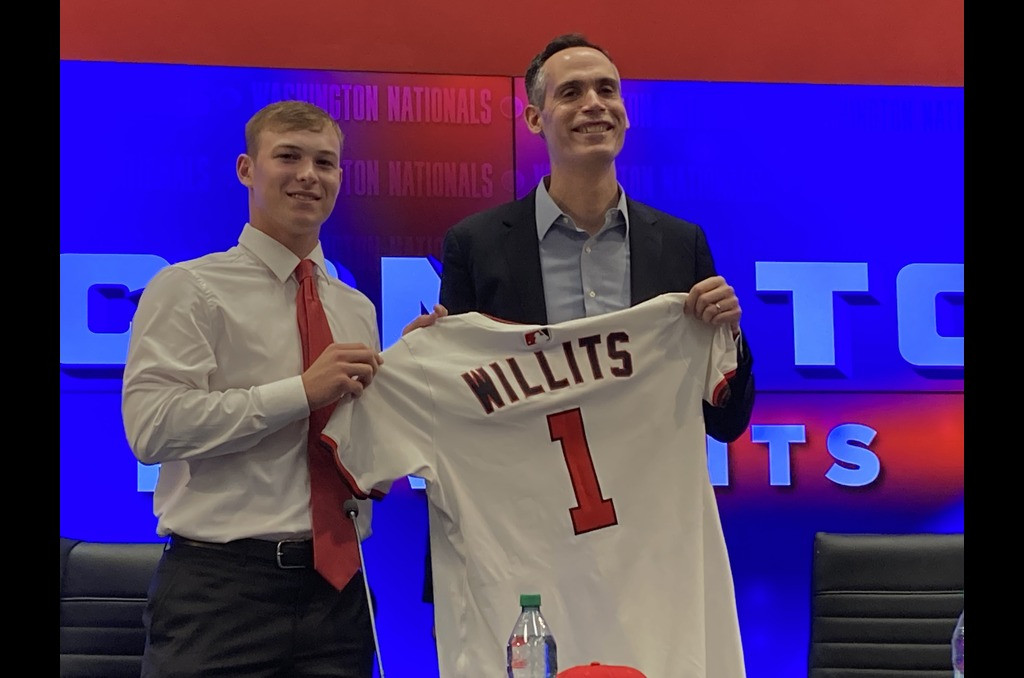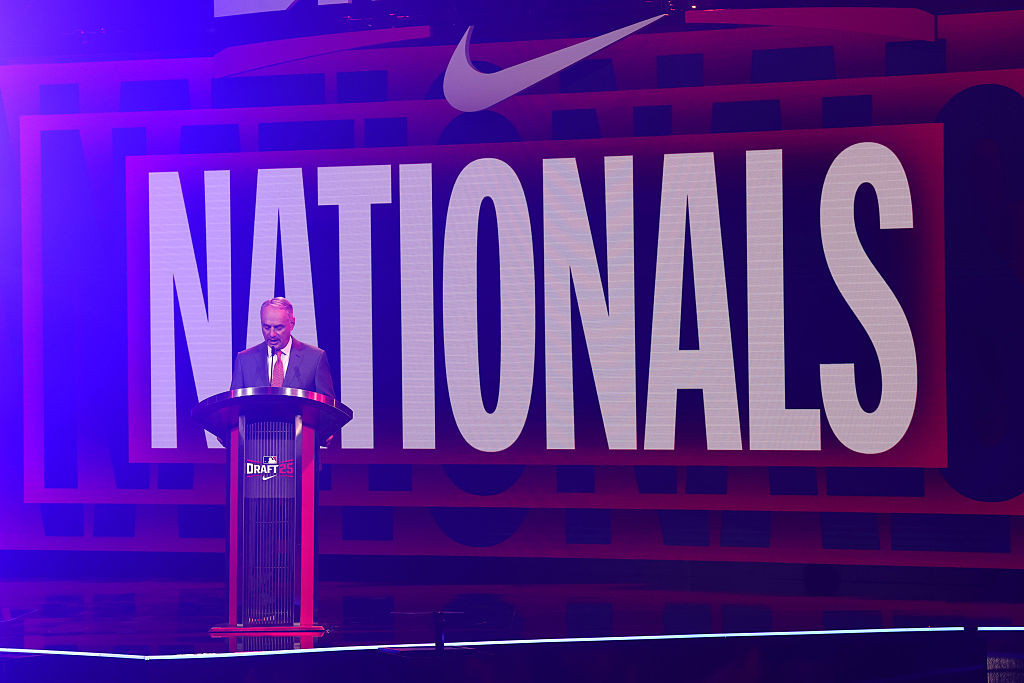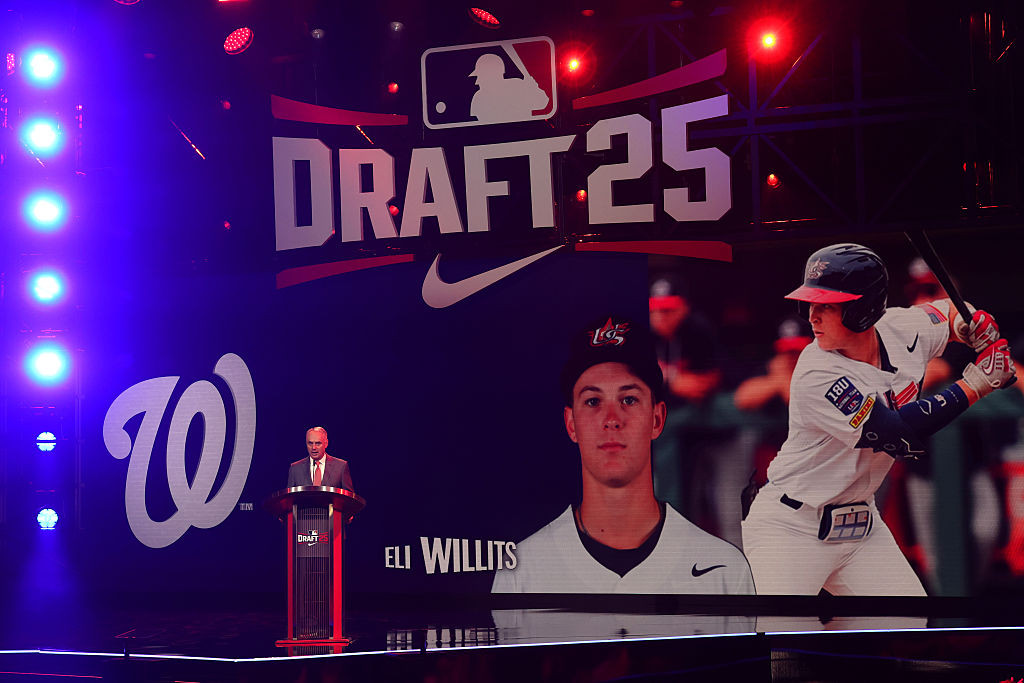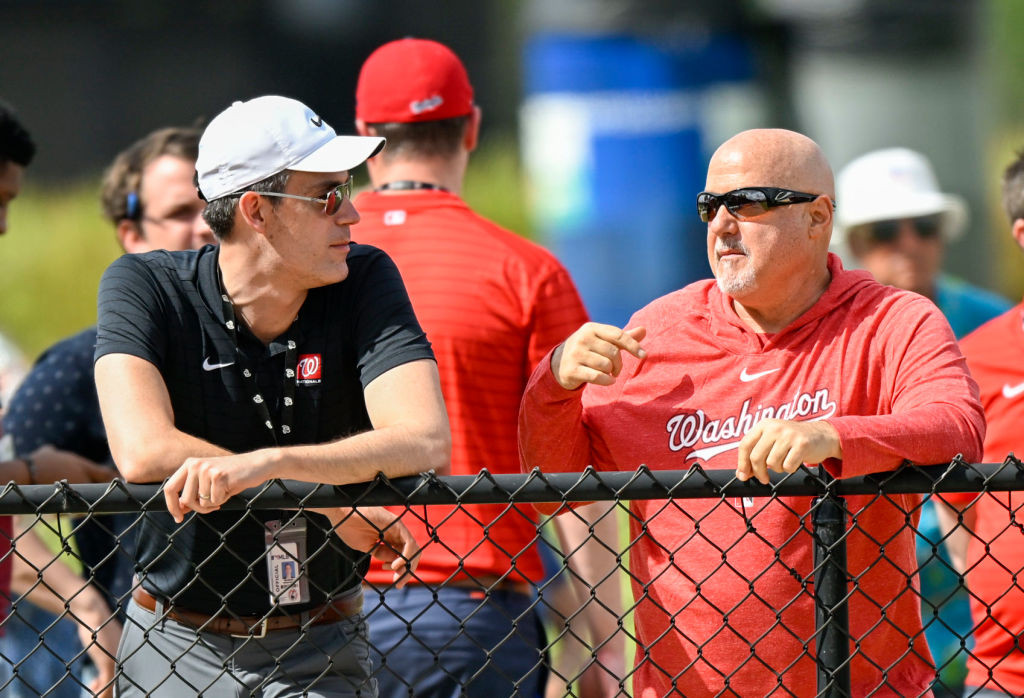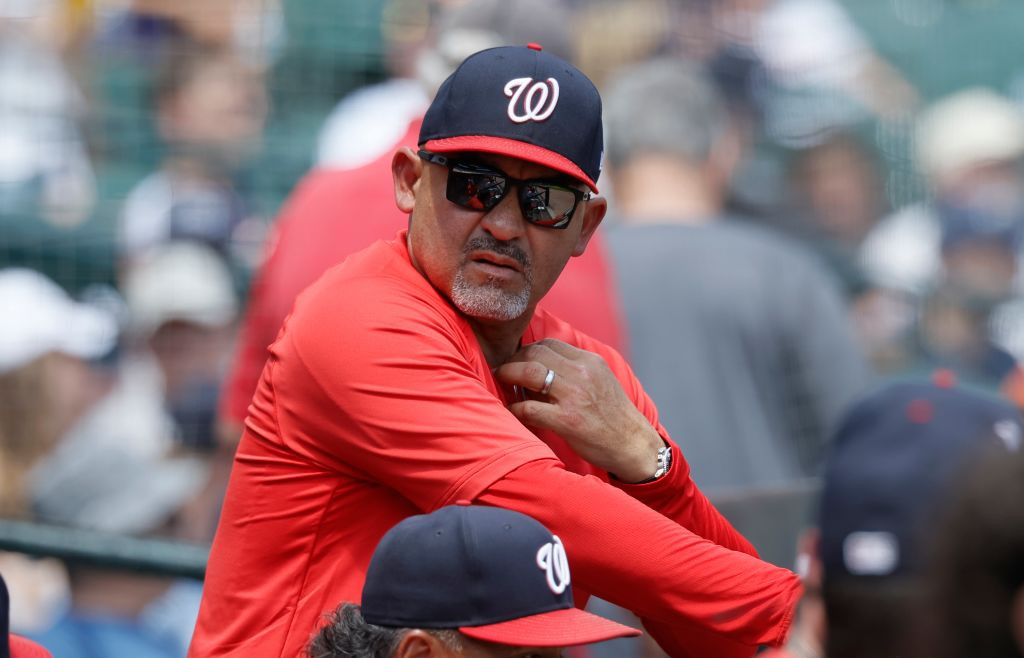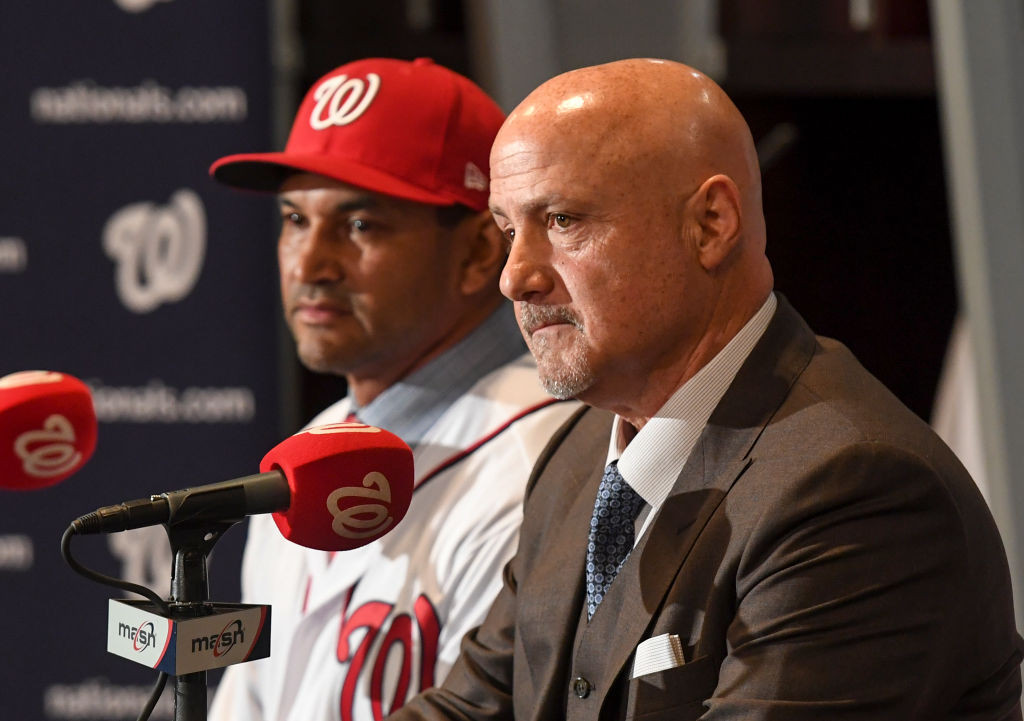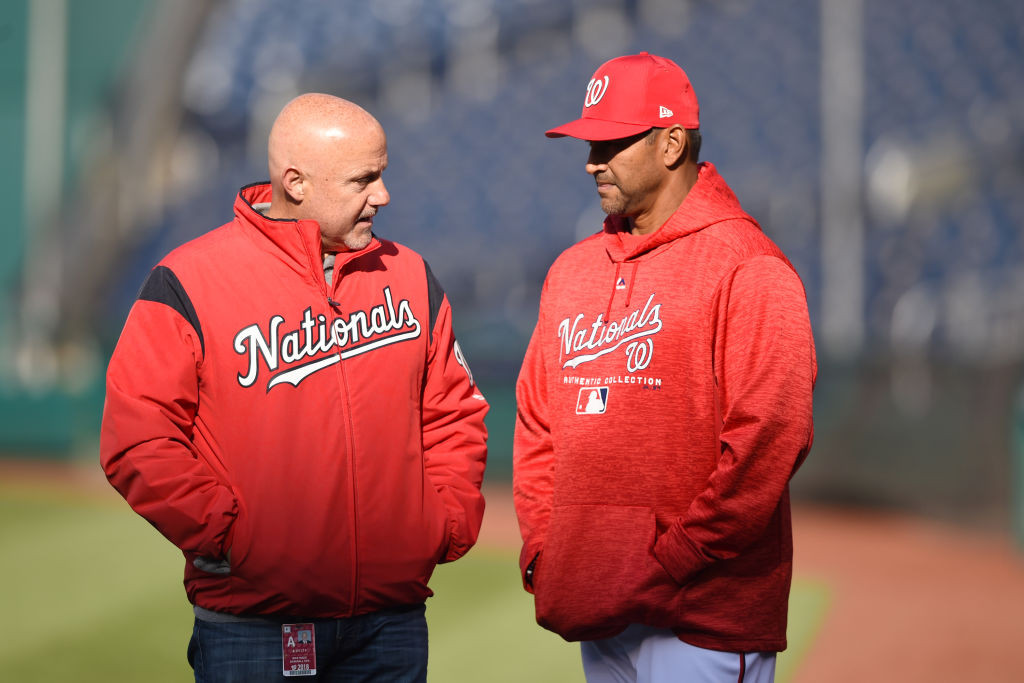We've reached the final week of the year, so it's time to look back at the Nationals' most significant stories of 2025. We begin the series today by looking back at an active trade deadline for the Nats, who had an interim general manager in charge of making deals …
Mike DeBartolo had an unexpectedly busy summer. When Mike Rizzo and Davey Martinez were relieved of their duties on July 6, the longtime assistant general manager was elevated to the interim GM role in place of Rizzo.
A week later, DeBartolo guided the Nats’ shaken-up front office through the MLB Draft, in which they used the No. 1 overall pick to select high school shortstop Eli Willits.
Then two weeks later, the interim GM had to navigate the trade deadline, one in which the Nats were expected to be very active.
But DeBartolo handled those challenges admirably. He did not shy away from drafting Willits, who some considered the best all-around player in the draft even at 17 years old, for underslot value to load up on other highly-touted prospects in subsequent rounds.
Wednesday night’s news that the Nationals are hiring Anirudh Kilambi as general manager surely caught a number of people by surprise. President of baseball operations Paul Toboni said as recently as last month he didn’t expect to add a GM to his front office yet, seemingly content with the organizational flow chart that had come together since his hiring in late-September.
But then came word of the hiring of Kilambi, a 31-year-old data guru who spent the last decade working for the Rays and Phillies and now gets his highest-profile job to date as one of the youngest GMs in major league history.
It might leave you a bit confused. Fortunately, we’re here to answer some of the questions you likely have right now. If nothing else, consider this a placeholder until we get a chance to interview both Toboni and Kilambi later this week …
Q: So, Anirudh Kilambi is actually Mike Rizzo’s replacement?
A: Only in title. And even then, it’s only in partial title. Though he typically was referred to as the Nats’ general manager, Rizzo officially was president of baseball operations and general manager. In short, he was the guy in charge of the entire front office, and he chose not to promote or hire someone to be the GM beneath him, preferring to employ several assistant GMs and several special assistants to the GM.
Q: So, what is Kilambi’s role compared to Toboni’s role?
A: Toboni is the guy in charge. He makes the final decision on free agent signings, trades, etc. Kilambi will serve as his right-hand man, with an emphasis on all matters related to analytics, data and technology. That’s his background with Tampa Bay and Philadelphia, and he was widely regarded throughout baseball as a top young mind in that area, especially the job he did helping to acquire and develop lesser-known pitchers into quality big leaguers during his seven years with the Rays.
Though he didn’t literally know Blake Butera before, Paul Toboni felt like he already knew all about the young man he just hired to be Nationals manager, long before either was employed by the franchise.
During Toboni’s 10 years working in the Red Sox front office, Butera’s name came up a number of times. They had overlapping circles of baseball friends. They came from similar backgrounds. Toboni even vaguely remembers scouting Butera when the latter played at Boston College, despite the fact they’re only separated by two years in age.
So when it came time to assemble a list of candidates for the Nats’ open managerial position, Toboni knew he wanted to meet with Butera. And once they did meet on multiple occasions, the 35-year-old president of baseball operations jumped at the opportunity to hire the 33-year-old rookie skipper.
“I really went into this process having an understanding of what I thought it was going to be like, but didn’t honestly know until I really hopped into it,” Toboni said today during a video conference with reporters. “I’m really fortunate that we did reach out to interview him, because he blew me away throughout the process.”
Butera, who worked for the Rays as a minor league manager and front office executive, was hired by the Nationals last week. He won’t be formally introduced for a couple more weeks, because he and his wife just welcomed their first child into the family on the same day he signed his contract.
The Nationals are finalizing a deal to hire Paul Toboni from the Red Sox as their new head of baseball operations, ultimately choosing to bring in an up-and-coming outside voice to lead the organization rather than staying in-house.
The deal with Toboni is not done yet, but sources familiar with the move confirmed the 35-year-old has been selected by the Lerner family as the choice to replace Mike Rizzo, who was fired as president of baseball operations and general manager in July after 16 years in the position.
Still unclear is Toboni’s new title with the Nationals, whether he is named president of baseball operations, general manager or both, and whether he’ll have a GM as his second-in-command, whether that’s current interim GM Mike DeBartolo or someone else.
No official announcement has been planned yet, but the club has hoped all along to be able to introduce its new head of baseball operations just before or immediately after the season ends Sunday, with Major League Baseball discouraging teams from holding major press conferences during the postseason (which begins Tuesday).
Toboni was one of at least seven reported candidates for the job, joined by DeBartolo, fellow Red Sox assistant GM Eddie Romero, Dodgers senior vice president Josh Byrnes, Cubs GM Carter Hawkins, Guardians assistant GM Matt Forman and Diamondbacks assistant GM Amiel Sawdaye. From that group, only Byrnes (a D.C. native) had previously held a full-time job running a baseball operations department (both Arizona and San Diego).
The last couple of weeks have not been kind to the Nationals. But the last month has been great for the organization’s farm system.
A lot was asked of Mike DeBartolo when he was given the interim general manager tag on July 6, exactly one week away from making the No. 1 overall selection in the MLB Draft. Two and half weeks later, he had to navigate a hectic trade deadline.
By all accounts, DeBartolo did a really good job for the Nationals’ future.
With No. 1 pick Eli Willits signing under slot value at $8.2 million, the Nats saved almost $3 million toward their bonus pool to draft and sign other high-potential players with their top five picks. Outfielder Ethan Petry (University of South Carolina), prep right-handers Landon Harmon and Miguel Sime Jr., and high school shortstop Coy James all signed well above their respective designated slot values.
And then just last week, DeBartolo was able to trade six major league players (five on expiring contracts and one that was not going to be a part of the young outfield's future) for 10 new prospects.
After a frantic final 48 hours, the dust has settled and the trade deadline has passed. The Nationals had their most active late-July since 2021, with interim general manager Mike DeBartolo making five deals involving six veterans traded away for 10 prospects in return. They didn’t make any earth-shattering moves, but swap out a sizeable group of players who didn’t figure into the club’s long-term plans for a larger group of young players who could some day.
Now, what’s left after all that? A host of questions that still need answering. Which we’ll attempt to do right here in our morning-after explainer …
WHY DIDN’T THEY TRADE JOSH BELL OR PAUL DEJONG?
Because, quite frankly, there weren’t any takers. DeBartolo said he attempted to make deals that would have given both veterans an opportunity to play on contenders before becoming free agents, but “ultimately nothing came together.” So while the five other vets on expiring contracts (Kyle Finnegan, Michael Soroka, Amed Rosario, Andrew Chafin, Luis Garcia) did get traded, Bell and DeJong did not and remain with the club as the calendar shifts to August.
HOW SERIOUS WERE THEY ABOUT TRADING MACKENZIE GORE?
Obviously, not serious enough to actually pull the trigger on what would’ve been the team’s biggest deadline deal since the blockbuster that brough Gore to D.C. in the first place three years ago. DeBartolo said two weeks ago he would listen to any offers that came his way from other clubs, but he viewed the 26-year-old lefty as a key part of their core group of young players they’re ultimately trying to win with. And he stayed true to his word. Though there were calls from a number of interested parties, none was willing to meet the exceptionally high price DeBartolo established for his ace. So Gore remains a National.
DID ALEX CALL REALLY FETCH THE BEST PROSPECT RETURN OF ANYONE?
Based on MLB Pipeline’s rankings, yes. The two players the Dodgers sent in exchange for Call (right-handers Sean Paul Liñan and Eriq Swan) now rate as the Nationals’ 10th and 12th best prospects, with the two players they acquired from the Cubs for Soroka (outfielder Christian Franklin, shortstop Ronny Cruz) each one notch below in spots No. 11 and 13. How did that happen? Well, DeBartolo sold high on Call, who over the last two seasons produced a solid .297/.388/.432 slash line across 350 plate appearances in a part-time role. He also comes with a whopping four remaining years of club control and two minor league options as well. That’s probably why L.A. was willing to give up a couple of decent prospects in return.
It’s hard to imagine any trade deadline that approaches the Nationals’ 2021 trade deadline in terms of both volume and significant names. Over those wild 36 hours, former general manager Mike Rizzo made six deals involving eight veterans in exchange for 12 prospects, kickstarting an organizational rebuild that still continues to this day.
Mike DeBartolo probably won’t match his predecessor, but as Major League Baseball’s official deadline day arrives, the interim GM is already showing a willingness to be exceptionally active.
It began Saturday night when the Nationals dealt infielder Amed Rosario to the Yankees for minor leaguers Clayton Beeter and Browm Martinez. It continued Wednesday afternoon when they sent relievers Andrew Chafin and Luis Garcia together to the Angels for left-hander Jake Eder and first baseman Sam Brown. And it didn’t let up Wednesday night when (with the team still en route home from Houston to D.C.) Michael Soroka was traded to the Cubs for infielder Ronny Cruz and outfielder Christian Franklin (both top-15-ranked prospects in Chicago’s farm system).
All this before the actual deadline day, which figures to be plenty active in its own right.
DeBartolo has now dealt four of the team’s seven veterans on expiring contracts. He’s still got Kyle Finnegan, Josh Bell and Paul DeJong on the docket before the 6 p.m. deadline.
MINNEAPOLIS – The Nationals departed the Twin Cities after Sunday’s victory with a roster that experienced only one change over the course of the weekend, with Jose Tena replacing the traded Amed Rosario.
By the time the team departs Houston following Wednesday’s game, there’s a decent chance that roster will have undergone even more change.
With Major League Baseball’s trade deadline now fast approaching, we’ve reached that point in the season where anything and everything can happen, and usually does. Though the deadline doesn’t arrive until 6 p.m. Eastern Thursday (an off-day for the Nationals), plenty of deals will be consummated these next three days as teams look to get a jump on the process and add key players for a few extra games.
We’ve known for a while the Nats were going to be active. Once they endured through a miserable 7-19 month of June, and certainly once ownership made the decision July 6 to fire general manager Mike Rizzo and manager Davey Martinez, it became clear they would once again be deadline sellers and not buyers for the fifth consecutive year.
Some of these recent deadline periods have included only a handful of trade candidates. This one, though, includes a bunch, because the Nationals entered the weekend with seven veteran players on expiring contracts: Rosario, designated hitter Josh Bell, infielder Paul DeJong, starter Michael Soroka and relievers Kyle Finnegan, Andrew Chafin and Luis Garcia. Rosario was dealt to the Yankees late Saturday night for a pair of prospects. The others all have a good chance of being dealt at some point over the next 82 hours.
Mike DeBartolo’s first week on the job as the Nationals’ interim general manager was consumed with the Major League Baseball Draft. His second and third weeks on the job are now focused on MLB’s upcoming trade deadline, and a critical question he must confront: How committed is the organization to its current group of young players?
The Nats will be sellers at the deadline for the fifth straight year, that much DeBartolo concedes. Veterans on expiring contracts like Kyle Finnegan, Michael Soroka, Josh Bell, Amed Rosario and Paul DeJong will be shopped.
But the asking price for those two-month rentals isn’t likely to be steep. If DeBartolo is interested in making more significant changes and acquiring more prominent prospects before July 31, he would need to consider dealing players still under club control beyond 2025.
First baseman Nathaniel Lowe, who has one year of arbitration eligibility remaining, is one possibility. But what about MacKenzie Gore, one of the key prospects acquired in the 2022 Juan Soto blockbuster and a first-time All-Star, yet one who only has 2 1/2 years left of club control (same as Soto at the time of that trade)?
DeBartolo didn’t straight up shoot down the possibility when asked Saturday in a session with reporters following No. 1 draft pick Eli Willits’ introductory press conference. But he did make it fairly clear he’s not interested in breaking up what he believes is a solid foundation of young players already at the major league level.
When it came time to negotiate his first professional contract, Eli Willits felt no need to waste any time. He wanted to get the deal done and get to work. He does have a goal, of course, of reaching the big leagues at an extremely young age.
“I’m just ready to get out there and play,” the Nationals’ top draft pick said this afternoon. “I set a goal to be in the big leagues by the time I’m 20. That’s something I’m really excited to do, and hopefully I get there and start playing well, and that can be something I accomplish in the next few years.”
So it was that Willits found himself at Nationals Park, only six days after he was selected No. 1 overall in the Major League Baseball Draft, signing his first professional contract, donning City Connect gear and working out at shortstop and in the batting cage alongside big leaguers prior to tonight’s game against the Padres.
Of course, Willits wasn’t legally allowed to sign that contract by himself. Because he won’t turn 18 until December, his parents also had to sign the $8.2 million deal offered to him by the Nats.
That dollar amount, while a record for a player drafted out of high school, still came in well below MLB’s designated slot value for this year’s No. 1 pick ($11,075,900). The Nationals already were enamored enough with Willits on his playing merits and long-term potential to select him over fellow Oklahoma high school shortstop Ethan Holliday and LSU left-hander Kade Anderson. But the fact they could spend less on his signing bonus and apply those savings to later-round picks was an added bonus for a recently reshaped front office that entered this draft hoping to do something along those lines.
Apologies that my annual Nationals draft tracker was not up this year. I was making my way back from covering the team in Milwaukee on Monday and couldn’t follow along the second day of the MLB Draft live.
But on this, the slowest day in the sports calendar, let us revisit the 17 picks the Nationals made in Rounds 4-20 throughout the day Monday.
Of course, we know the Nationals brass – now led by interim general manager Mike DeBartolo along with mainstays vice president of amateur scouting Danny Haas, senior director of amateur Scouting Brad Ciolek and assistant director and national crosschecker of amateur scouting Reed Dunn – made somewhat of a surprising pick by taking Oklahoma high school shortstop Eli Willits at No. 1 overall.
Their other two picks from Sunday night include power-hitting outfielder Ethan Petry out of the University of South Carolina at No. 49 overall and right-hander Landon Harmon out of East Union Attendance Center High School (Miss.) with the No. 80 overall pick.
And with that, let’s take a look at the rest of the Nationals’ 2025 draft class (round, overall, name, position, B/T, height, weight, age, school) …
The gentlemen in charge of the Nationals’ draft war room Sunday night all made the same point, in their own various words, about the ultimate decision to use the No. 1 pick on Eli Willits. They all were adamant he was the choice, no dissension in the room.
Vice president of amateur scouting Danny Haas: “I think there was general consensus for a while, and it solidified into unanimous toward the end of our process.”
Assistant scouting director/national crosschecker Reed Dunn: “I’m really proud of the work everybody did to come together. And, as Danny said, to make a unanimous decision on somebody we truly believe in.”
Senior director of amateur scouting Brad Ciolek: “We scouted the entire class. We were prepared. And then ultimately when we ended up winning the lottery, we knew exactly who we needed to hone in on, who we needed to do more work on.”
Interim general manager Mike DeBartolo: “It was one of those nice things where the scouts and the analysts see things the exact same way and saw him as the best hitter in the draft, the best fielder in the draft, with just great makeup, great work ethic and all the intangibles. Everything came together, and it was a really collaborative and great process.”
ST. LOUIS – While making a point to thank the man he has replaced and the owners who have now given him an unexpected opportunity to lead a baseball operations department, interim general manager Mike DeBartolo made clear today he has been given the authority to lead the Nationals into a new direction he believes will lift them back into regular contention after six straight losing seasons since the franchise won the World Series.
“The fans are right to be frustrated. We’re all frustrated,” DeBartolo said this afternoon in his first public comments since replacing Mike Rizzo on Sunday evening. “We have a lot of interesting, exciting, young pieces to build on. We have a lot more we need to build. Simply stepping up our game is not enough. We need real change. I’m excited to bring a fresh approach, a fresh voice to this role, and integrate more data, more technology, more innovation into our decision-making across the organization at all levels, and hopefully improve the performance of our players as well.”
The man who now reports to DeBartolo as interim manager, meanwhile, made it clear he took the job only because he first received the blessing of his predecessor and close friend.
“The only approval, the only blessing that I needed, it was from my friend, Dave Martinez,” Miguel Cairo said, his eyes welling up during his first press conference in his new role. “And the reason I’m doing this right now and I took the job is because I got his blessing. If he would have told me no, I would have gone home with him, gone to see my family. But he told me to do it, continue doing what we started.”
Cairo, who served only 1 1/2 seasons as Martinez’s bench coach but has known him since the two were teammates with the Devil Rays in 1998, will lead the existing coaching staff through the remainder of the season, with two slight changes. Catching instructor Henry Blanco will now become his bench coach, and organizational mainstay Bob Henley will return to the big league staff as field coordinator.
When last we saw the Nationals on the field, CJ Abrams was lofting a long fly ball to left field for the final out of a 6-4 loss to the Red Sox, completing a series sweep. A frustrating loss to end the homestand, for sure, but it was immediately followed by uplifting news: James Wood and MacKenzie Gore had been voted into the All-Star Game by their peers.
When the Nats take the field again tonight in St. Louis, they will do so after the biggest shakeup this organization has experienced in a very long time. The Sunday night firings of general manager Mike Rizzo and manager Davey Martinez threw the franchise into chaos, and it’s probably a good thing the team was off Monday because it took more than 24 hours for the dust to settle from that seismic event.
Miguel Cairo, not Martinez, will be manager tonight against the Cardinals and presumably each of the season’s final 70 games. Mike DeBartolo, not Rizzo, will be in charge of baseball operations. Both already were well-respected club employees and are as reasonably prepared for their new assignments as possible. But both are entering uncharted waters.
There are countless questions that still need to be answered. Some of them probably need to be answered by a higher-ranking team employee than will be made available this afternoon at Busch Stadium. But for now, here’s what we need to hear from DeBartolo and Cairo as they embark on an unexpected journey for the next three months …
ARE THERE ANY OTHER CHANGES TO THE COACHING STAFF?
It did not initially sound like there are, but we don’t know that for sure yet. Cairo gets bumped up from bench coach to interim manager. Will he have a bench coach? Will they add that title to catching coach Henry Blanco’s responsibilities, or might they add someone new to the staff to help out? Is everyone else from Martinez’s staff staying through the season, one that essentially leaves them all with lame-duck status?
Mike Rizzo became the Nationals’ full-time general manager in August 2009. By that point, he had three years of experience with the organization, five months of experience as interim GM. Taking over a franchise in disarray following the mid-spring training resignation of Jim Bowden amid a scandal involving a Dominican prospect who falsified his name and age, Rizzo did plenty during those five months to convince the Lerner family and then-team president Stan Kasten he deserved the job on a permanent basis.
But there was one final task Rizzo needed to accomplish before his superiors were fully convinced: He needed to sign Stephen Strasburg before the Aug. 15 midnight deadline for all of that summer’s draft picks.
Rizzo took negotiations with agent Scott Boras down to the final minute before emerging with a deal: four years, $15.1 million, the most money ever guaranteed a major league draft pick. And in the Nationals Park conference room where he announced that successful deal in the wee hours of the morning – the same room where one year earlier Bowden announced he had not been able to sign 2008 first round pick Aaron Crow – an unsuspecting Rizzo was ambushed by Kasten with a shaving cream pie to the face.
A few days later, Rizzo officially had the GM job he long coveted. One he held for just shy of 16 years, making him one of the longest tenured heads of baseball operations in the industry. Along the way, he built a 103-loss team into a 98-win division champion, made the playoffs five times in eight seasons, won D.C.’s first World Series title since 1924, tore down the remnants of that championship roster to embark on another rebuild, traded away a likely future Hall of Famer for five prospects (three of which have since become All-Stars), hired five managers, signed five players to nine-figure contracts, signed countless more to lesser deals, acquired players who helped make the team better and in some cases worse and both butted heads with and celebrated successes with nearly everyone he worked with along the way.
Signed to five separate contract extensions over the years, Rizzo always seemed to find himself waiting until the last minute for his bosses to lock him up, an annoyance for sure but one he begrudgingly accepted as the price of holding such an important position in this organization. That’s the situation he found himself in once again this summer, waiting to see if the Lerner family was going to pick up his contract option for the following season or finally decide it was time to make a change.
A massively disappointing first half to a season that was expected to feature significant on-field progress four years into a franchise rebuild has cost the two most prominent people in the Nationals organization their jobs.
Both general manager Mike Rizzo and manager Davey Martinez were fired by ownership this evening, shortly after the team was swept by the Red Sox to fall to 37-53. In a statement announcing the stunning changes, managing principal owner Mark Lerner said longtime assistant general manager Mike DeBartolo will take over as interim GM in Rizzo’s stead. An interim manager to replace Martinez will be named Monday.
“On behalf of our family and the Washington Nationals organization, I first and foremost want to thank Mike and Davey for their contributions to our franchise and our city,” Lerner said. “Our family is eternally grateful for their years of dedication to the organization, including their roles in bringing a World Series trophy to Washington, D.C. While we are appreciative of their past successes, the on-field performance has not been where we or our fans expect it to be. This is a pivotal time for our club, and we believe a fresh approach and new energy is the best course of action for our team moving forward.”
Though the long-term fates of both Rizzo and Martinez were very much up in the air after a dismal month of June that included an 11-game losing streak, the decision to make changes at both positions right now, one week shy of the All-Star break and the MLB Draft – with the Nats holding the No. 1 overall pick – was unexpected.
Both Rizzo and Martinez had 2026 contract options that needed to be picked up sometime this month. Had they not been picked up, it was assumed both would still finish out the rest of the season before changes were made, perhaps more so in the case of the GM position than the managerial position.




-1745819772711.png)
